
Among modern and postmodern writers, Beckett, Nabokov, Richard Yates, Thomas Bernhard, Muriel Spark, Don DeLillo, Martin Amis, and David Foster Wallace have all employed and impaled cliché in their work. Paul Auster is probably America’s best-known postmodern novelist; his “New York Trilogy” must have been read by thousands who do not usually read avant-garde fiction. Auster clearly shares this engagement with mediation and borrowedness—hence, his cinematic plots and rather bogus dialogue—and yet he does nothing with cliché except use it.i made a point of avoiding wood until i'd finished book of illusions myself, as i wanted to give auster a fair shake - but he's absolutely right. in this fairly representative passage, for instance, professor david zimmer is narrating the morning after sleeping with a strange birthmarked woman who shows up on his stoop, pulls a gun on him and tries to force him to go to new mexico (insert new mexico joke here), then makes sweet, sweet love to him after he disarms her and nearly blows his own brains out by accident:
Neither one of us said anything about what had happened in my bedroom the night before. It sat in the car with us like a secret, like something that belonged to the domain of small rooms and nocturnal thoughts and must not be exposed to the light of day. To name it would have been to risk destroying it, and therefore we didn't go much beyond an occasional sidelong glance, a fleeting smile, a hand placed cautiously on the other's knee. How could I presume to know what Alma was thinking? I was glad that she crawled into my bed, and I was glad that we had spent those hours together in the darkness. But that was only one night, and I had no idea what what going to happen to us next.auster makes it abundantly clear that realism isn't his bag: zimmer notes on page five that "we all want to believe in impossible things," and we're reminded constantly that he and his fellow characters are types. "although there are things to admire in auster's fiction," wood notes, "the prose is never one of them" - but auster's stock phrases are a postmodern thing as well, see, and knocking them would be unsporting.
VICTOR: let the great world spin. the book of illusions is bad like a cobra.
imaginary reading group discussion questions
01 how d'you think the dutch feel about jane austen?
02 does etymological proximity breed contempt for you?
03 do you dog-ear your books?
04 what's the worst thing you've read this year?
*previous battle here.
He had been afraid marrying her she would get fat like her mother but as she ages more and more her skinny little stringy go-getter of a father comes out in her. His hand leaves the dip to stray around in front to her belly, faintly lovingly loose from having had two babies. Puppy's neck.really, updike? this second traipse through harry ("rabbit") angstrom's life takes place a decade later, in 1969; harry and janice are still married and now in their mid-thirties, and we're brought up to speed on what happened to their bodies in those intervening years via updike's interminable accounts of their sex acts. we're then presented with a number of set pieces: harry with an eighteen-year-old runaway, the runaway with a fugitive black vietnam vet, harry with his former schoolmate, janice with her hairy greek lover, the greek lover with harry's sister...it's kind of intense. the book's fans (who are themselves awfully intense) love the fact that updike is reacting to the social upheaval of the sixties in the moment (rabbit redux was published in 1971), but this is hardly a three-dimensional look at how two people remake themselves; we're told, for example, that janice's lover appreciates her in a way that harry doesn't, but honoring her femininity appears to boil down to making her feel like "a piece of ass." revolutionary, that. the fugitive, skeeter, is the revolution's babbling tongue, and the trouble he causes by hiding out and smoking up in harry's home is at the center of the story. the center, mind you, but not the core: his rants are plunked down in the middle of the book like tropical fish in a tank. as an admiring recent reviewer puts it,
Rabbit Redux shows a writer willing as few other American novelists are (Norman Rush comes to mind) to suspend judgment on his characters’ political, philosophical, moral, and theological failings – to love them anyway. Indeed, it is characteristic of Updike that the “rhetoric of social protest and revolt… antithetical to [his] Fifties education” (as he puts it in the omnibus introduction) aroused not his defenses, but his curiosity.am i expected to applaud him for being superficially interested in fish, or for following through on every last one of his characters' inclinations? that reviewer goes on to argue that skeeter really does change harry, but i'm skeptical: rabbit's a looter, not a protester, and both he and his author leave me cold.
VICTOR: let the great world spin. updike's writing is just as lovely as mccann's, puppy imagery notwithstanding - but he's still a creep.
imaginary reading group discussion questions
01 no peeking; how do you pronounce "redux"?
02 since it's that time of the year again, how are you feeling about john updike today? am i being unfair to him?
03 how much sex, in a literary sense, is too much?
04 what was your last nifty used book find? i had some luck the other day, and am excited about getting into my first dashiell hammett (once i finish this paul auster, which...burns).
*previous battle here.
**which made it a bit easier to forgive steve for eating(?!) the dust jacket. on some level it's appropriate for rabbit redux to suffer at the hands of a white troublemaker, but still.
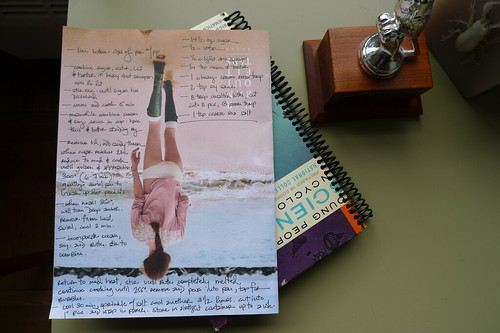
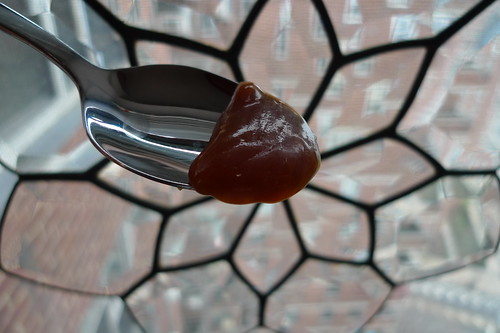
*which is not to say nunu's hand dipped salt caramels aren't worth every penny. they are, is the problem.
**vampire caramel? non-stephenie-meyer-vampire caramel, i mean. it doesn't sparkle.



*pyrat, that is. i'm not usually a rum fan, dark and stormies notwithstanding, but this stuff (from the folks who make patron) is good enough to drink on the rocks.

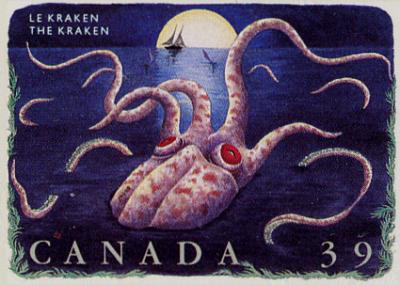
There hath he lain for ages, and will stewprepare for the last battle, internets.
Battening upon huge sea-worms in his sleep,
Until the latter fire shall heat the deep;
Then once by man and angels to be seen,
In roaring he shall rise and fuck up Lauren's shoe.
imaginary reading group discussion questions
01 what the hell happened to my shoe?
02 were you aware of canada's postal excellence? (check out the whole cryptozoological quartet. where's our ogopogo stamp?)
03 on a totally unrelated note, paul auster readers, is the book of illusions acceptable as an entry point? a copy materialized, kraken-like, at my office, and i'm thinking of auditioning it as a subway book.
*a designer willing to knock off the balenciaga lego heels is capable of anything.
**an ongoing tally of the famous people and union-displeasure-indicating balloons i see in the city.




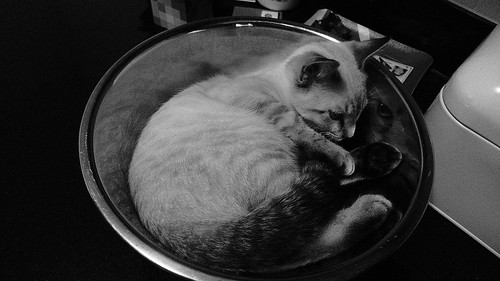
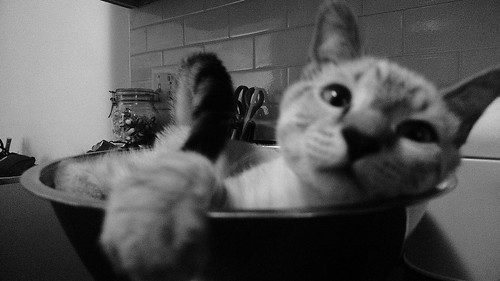
The archive also contains an extensive amount of writing from Wallace’s childhood and youth: a whimsical childhood poem about vikings ["For all these reasons stay away / from a viking every day."], signed “David Foster Wallace”; school essays about “Pride and Prejudice” and “Moby Dick”; four issues of “Sabrina,” the Amherst humor magazine he co-founded with his roommate, Mark Costello. For an author who leapt with astonishing rapidity from youthful promise into adult virtuosity, the juvenilia may prove especially illuminating.oh, DFW.
imaginary reading group discussion questions
01 have you ever been in a talent show? what was your act?
02 if you were/are a music video watcher, do you have a "heartbreak beat" analog?
03 have you ever let dressing room muzak talk you into or out of a clothing purchase?
*we didn't even make it past tryouts; robin benway shellacked us when she lip synced to the jets' "crush on you." that was fair, as i danced about as well then as i do now.
**which, if this month's vanity fair feature is to be trusted, had something to do with our local radio:
[Molly] Ringwald, for her part, found common ground with [John] Hughes in their shared taste for British-import pop. A California girl, she gushed to Hughes about the postpunk and New Wave music that she heard on KROQ, the Anglophilic L.A. station to which she was devoted. Pretty in Pink, she says, was written for her after she played Hughes the Psychedelic Furs song of that title.say what you will about simple minds and "don't you (forget about me)," but for my money, pretty in pink and its soundtrack are the best of the brat pack.





*kidchamp's new banner is a shot from the lightship deck.

VICTOR: let the great world spin. in an actual fight, i'm fairly sure flynn would wipe the floor with mccann. on paper, big, blowsy phrases tend to trump gripping ones for me - and animal sacrifice still freaks me out.
imaginary reading group discussion questions
01 what did you serve at your oscars-viewing, if you had one?
02 what's your take on stephen king?
03 how do you feel about horror in general?
04 what was the last book you read 'til three?
*previous battle here.
**and unforgivably light on george romero and blink-or-you'll-miss-him sam raimi (name checked later at the podium), and - twilight stars, really? kristen stewart and taylor lautner are easy on the eyes, sure, but behaving as though they have anything to do with horror is like calling deliverance a movie about canoeing.
***i was going to say "publishing's david lee roth," but that could mean so many things.




